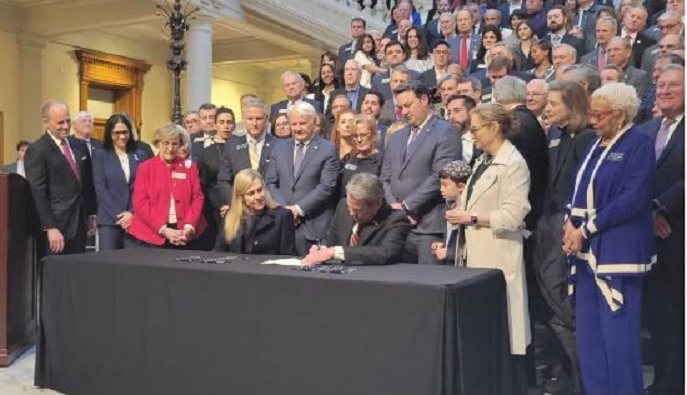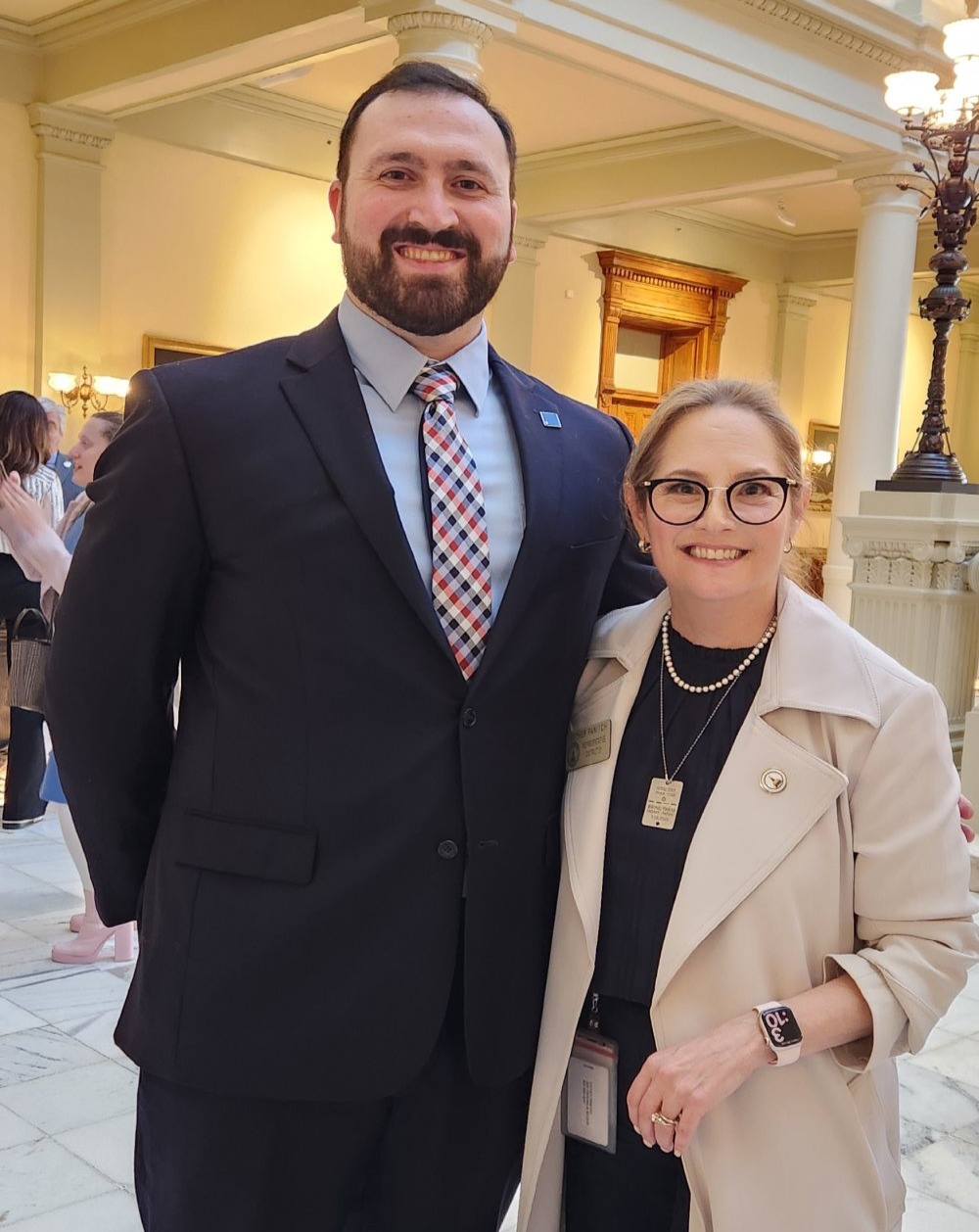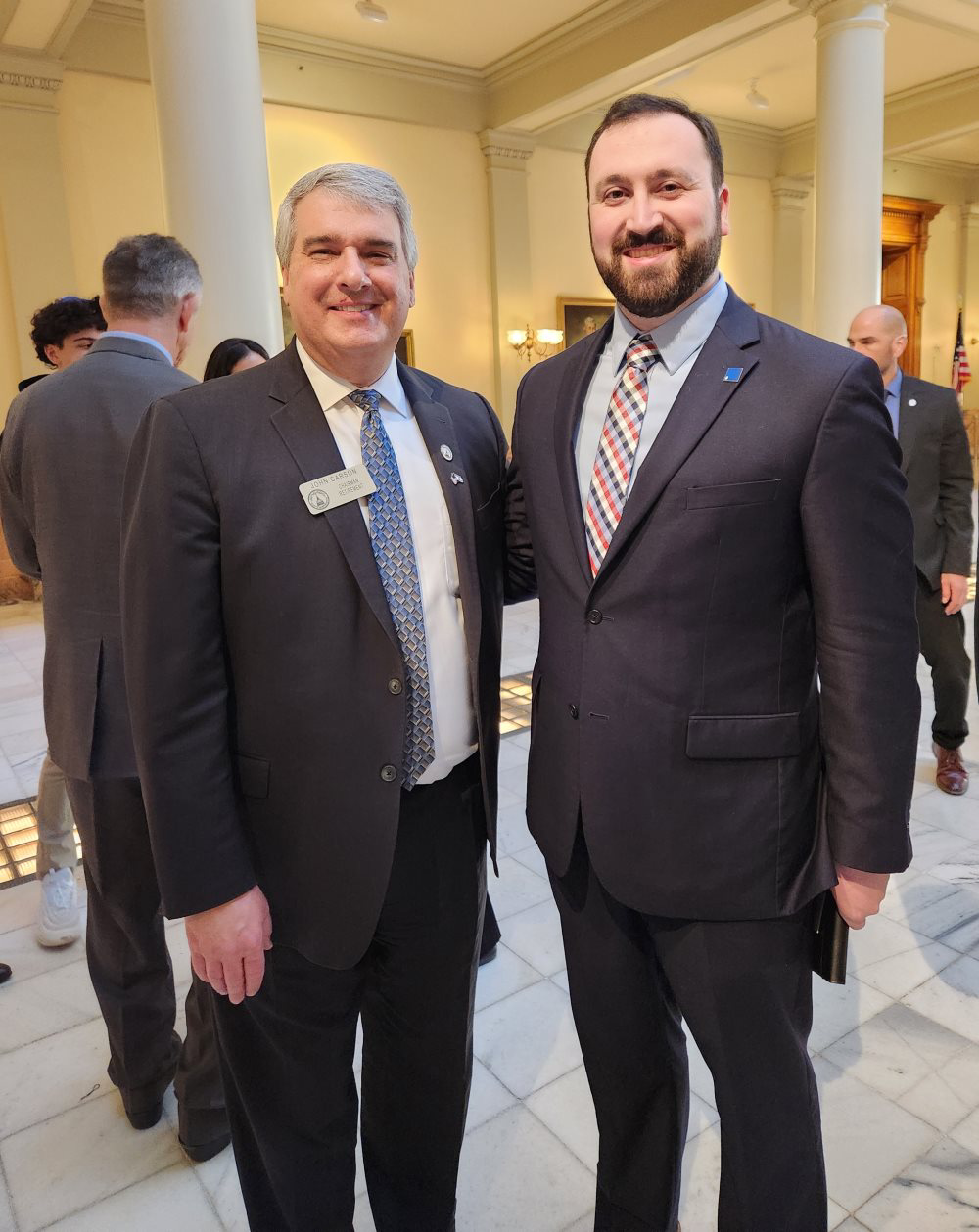(Atlanta, Georgia-Jan 31, 2024) — On January 31, 2024, Georgia Governor Brian Kemp signed HB-30 into law. StandWithUs thanks the governor for enacting this monumental legislation and also congratulates Georgia State Representatives John Carson (R-Marietta) and Esther Panitch (D-Sandy Springs) for their leadership in getting House Bill 30 passed by both houses in overwhelming majorities. StandWithUs also thanks its partners in the IAC for Action, the Israeli American Council, the National Jewish Advocacy Center, the Atlanta JCRC, and the many other organizations who helped lead Capitol Day on January 25, 2024, and rally Georgia in support of HB 30. The law adopts the International Holocaust Remembrance Alliance (IHRA) Working Definition of Antisemitism for state agencies.


Adam Blue, StandWithUs Educator, attended the signing ceremony held January 31 in the Capitol Building. As an educator who has worked with thousands of students, Blue understands the urgency of a functional, consensus-driven definition of Antisemitism. “In the U.S., cases of assault, harassment, vandalism against Jews, and online attacks have reached near-historic levels. Jewish students who openly express their religious, ethnic, or national identity often find themselves subject to discrimination, harassment, and worse. HB 30 seeks to ensure that state officials will take into consideration the IHRA Definition when assessing whether an incident of unlawful antisemitic discrimination has occurred.”
Roz Rothstein, StandWithUs CEO, commented on the necessity of defining antisemitism. “It is encouraging to see state after state adopt the IHRA Definition of Antisemitism at a time when antisemitism continues to run rife throughout America and the greater world. Historically, the world has struggled to address antisemitism due to its evolving nature. Codifying the IHRA Definition remains crucial to helping authorities realize how antisemitism manifests both classically and contemporarily while serving as an essential tool that will help standardize the fight against antisemitism.”

There has been confusion—sometimes intentional—about what adopting the IHRA Definition means. Adopting the IHRA Definition does not create a special non-discrimination class for Jewish people, nor does it impinge on First Amendment rights. The IHRA Definition is simply a guiding tool for how to identify antisemitism that may assist in the application of already-existing rules and laws where antisemitism may be involved. It does not criminalize any speech. HB 30 clarifies confusion about what antisemitism is by adopting a definition that was drafted by leading world experts to express the needs of antisemitism victims. The IHRA Definition has been adopted or endorsed by over 1,200 governments, institutions, and organizations, including the U.S. State Department, the U.S. Departments of Education, Justice, and State, governments of roughly 40 countries, the European Union, and the United Nations. The IHRA Definition has been supported by both Republican and Democrat presidential administrations.
About StandWithUs
StandWithUs (SWU) is an international, nonprofit, and non-partisan Israel education organization that works to inspire and educate people of all ages about Israel, as well as challenge misinformation and fight against antisemitism.
Through university fellowships, high school internships, middle school curricula, conferences, materials, social media, educational films, and missions to Israel, StandWithUs supports people around the world who want to educate their schools and communities about Israel.
Founded in 2001 and headquartered in Los Angeles, the organization has chapters and programs throughout the U.S., Israel, the UK, Canada, Brazil, Argentina and the Netherlands.
For the last eleven years, StandWithUs has consistently received the highest possible ratings from Charity Navigator and GuideStar, two charity watchdog groups that assess hundreds of thousands of charities in the United States.
www.standwithus.com and www.facebook.com/standwithus and www.twitter.com/standwithus and www.instagram.com/standwithus.com




